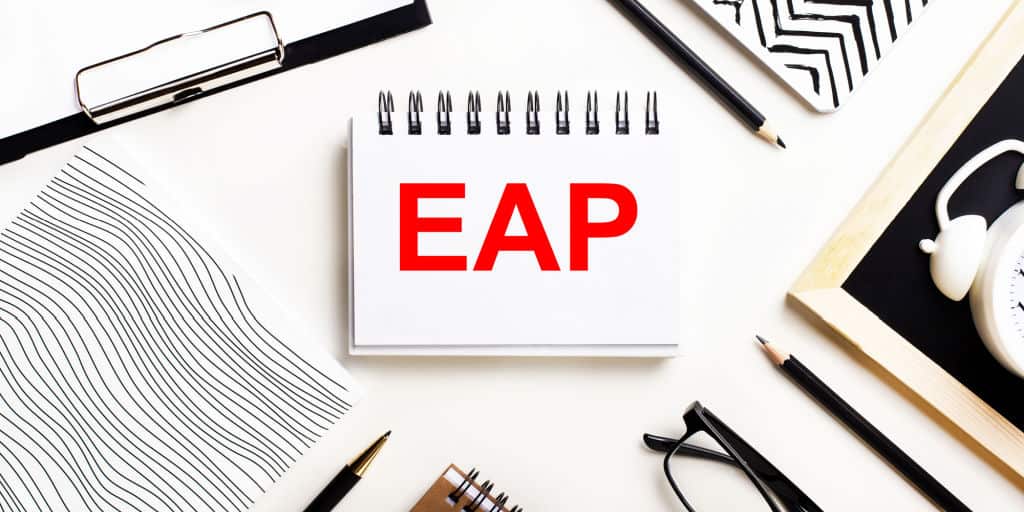Employee Assistance Programs (EAPs) are becoming increasingly popular as organizations recognize the importance of supporting the mental health and well-being of their employees. EAPs provide confidential counseling and support services to employees and their families to help them deal with personal and work-related issues. In this blog, we will discuss the role of EAP providers in delivering these services and how they can help employees achieve a healthier and more productive work-life balance.
Contents
What are Employee Assistance Programs (EAPs)?

Employee Assistance Programs (EAPs) are a type of employee benefits program that offers confidential counseling and support services to employees and their families. EAPs are designed to help employees deal with personal and work-related issues that may affect their mental health, job performance, and overall well-being.
EAPs typically provide a range of services, including counseling, crisis intervention, substance abuse and addiction counseling, financial counseling, legal services, and childcare assistance. These services are delivered by licensed mental health professionals, such as psychologists, social workers, and licensed professional counselors, who are trained to provide support and guidance to employees in a safe and confidential environment.
EAPs are typically provided by third-party vendors who work with employers to create customized programs that meet the specific needs of their workforce. EAPs are typically offered as a free or low-cost benefit to employees and are available 24/7 through a dedicated phone line or online portal.
How Do EAP Providers Deliver Their Services?

EAP providers deliver their services through a variety of channels to ensure that employees have easy access to counseling and support services. Some of the most common delivery methods include:
- Phone: EAP providers typically offer a dedicated phone line that employees can call to access counseling and support services. These phone lines are typically available 24/7 and staffed by licensed mental health professionals who can offer confidential counseling and support to employees.
- Video Conferencing: With the increasing popularity of remote work, many EAP providers now offer video conferencing services that allow employees to connect with mental health professionals from anywhere, including their home or office. These video conferencing sessions are typically conducted using secure, HIPAA-compliant platforms that ensure confidentiality and privacy.
- In-person Counseling: In addition to phone and video conferencing services, many EAP providers also offer in-person counseling services. These services are typically provided at a counseling center or other designated location and are conducted by licensed mental health professionals.
- Self-Help Resources: Many EAP providers also offer a range of self-help resources that employees can access online or through mobile apps. These resources may include articles, videos, webinars, and other educational materials that guide topics such as stress management, resilience, and work-life balance.
What Services Do EAP Providers Offer?
EAP providers offer a range of services to help employees address personal and work-related challenges. These services are designed to support employees’ mental health and well-being and may include:
- Confidential Counseling and Therapy Services: EAP providers offer confidential counseling and therapy services that allow employees to discuss personal and work-related issues with licensed mental health professionals. These sessions may be conducted over the phone, via video conferencing, or in person.
- Crisis Intervention and Support: EAP providers offer crisis intervention and support services to employees who are dealing with a mental health crisis, such as suicidal thoughts or feelings of overwhelming stress or anxiety.
- Substance Abuse and Addiction Counseling: EAP providers offer counseling and support services to employees who are struggling with substance abuse or addiction issues. These services may include referrals to treatment programs, ongoing counseling and support, and resources for family members.
- Financial Counseling and Debt Management: EAP providers offer financial counseling and debt management services to help employees manage financial stressors, such as debt, budgeting, and retirement planning.
- Legal Services and Referrals: EAP providers offer legal services and referrals to help employees navigate legal challenges, such as divorce, custody disputes, or workplace harassment.
- Childcare and Eldercare Resources: EAP providers offer resources and referrals to help employees manage family caregiving responsibilities, such as finding childcare or eldercare services.
- Health and Wellness Coaching: EAP providers offer health and wellness coaching services to help employees develop healthy habits, manage chronic conditions, and achieve their wellness goals.
- Work-Life Balance Resources and Referrals: EAP providers offer resources and referrals to help employees achieve a healthy work-life balance, such as time management techniques, stress management strategies, and mindfulness practices.
How to Choose the Right EAP Provider for Your Organization?

Choosing the right EAP provider for your organization is an important decision. Here are some factors to consider when choosing an EAP provider:
Services Offered
Different EAP providers may offer different services, so it’s important to choose an EAP provider that offers services that meet the specific needs of your workforce. For example, if your organization has a high percentage of employees who are parents, you may want to choose an EAP provider that offers childcare resources and referrals.
Quality of Services
The quality of counseling and support services can vary widely among EAP providers. When choosing an EAP provider, consider the qualifications and experience of the mental health professionals who will be providing services to your employees. You may also want to look at reviews or ratings from other organizations that have used the same EAP provider.
Accessibility
It’s important to choose an EAP provider that offers services that are easily accessible to your employees. This may include services that are available 24/7, multiple delivery channels such as phone, video conferencing, or in-person counseling, and a user-friendly online portal or mobile app.
Cost
EAP providers may charge different fees for their services, so it’s important to choose an EAP provider that fits within your organization’s budget. Consider whether the EAP provider charges a flat fee or a fee per employee and whether there are any additional costs for specific services.
Customer Support
When choosing an EAP provider, consider the level of customer support that is available to your organization and your employees. You may want to choose an EAP provider that offers training and education programs for employees and managers to ensure that they know how to access and use EAP services effectively.
Reputation
The reputation of the EAP provider can also be an important factor to consider. Choose an EAP provider that has a proven track record of providing high-quality services to organizations similar to yours.
What Are the Benefits of Working with an EAP Provider?
Working with an EAP (Employee Assistance Program) provider can offer a range of benefits for both employees and employers, including:
- Improved Employee Mental Health and Well-being: By providing access to confidential counseling and support services, EAP providers can help employees deal with personal and work-related issues, reduce stress and anxiety, and ultimately improve their mental health and well-being.
- Reduced Healthcare Costs and Absenteeism Rates: When employees have access to mental health services through EAP providers, they are more likely to seek treatment and manage their conditions before they become more severe. This can reduce the need for costly healthcare interventions and lower absenteeism and presenteeism rates.
- Increased Employee Productivity and Job Satisfaction: By addressing personal and work-related issues that may affect employees’ job performance and overall well-being, EAP providers can help employees become more productive, engaged, and satisfied in their jobs.
- Demonstrated Commitment to Employee Well-being: By offering EAP services, employers can demonstrate their commitment to supporting their employees’ mental health and well-being. This can help create a positive work culture, improve employee morale, and ultimately lead to a more productive workforce.
- Access to a Range of Counseling and Support Services: EAP providers offer a range of counseling and support services to employees, including confidential counseling and therapy services, crisis intervention and support, substance abuse and addiction counseling, financial counseling, legal services, and childcare assistance.
- Improved Employee Retention and Recruitment: By demonstrating a commitment to employee well-being and providing access to confidential counseling and support services, employers can improve employee retention and recruitment by creating a positive and supportive work environment.
Conclusion
In conclusion, employee assistance programs (EAPs) offer a valuable benefit for organizations that are committed to supporting their employees’ mental health and well-being. By providing access to confidential counseling and support services, EAP providers can help employees manage personal and work-related challenges.
Overall, EAPs can offer a win-win solution for both employees and employers, leading to a happier, healthier, and more productive workforce.
Employee wellness programs are the key to improving employee motivation, productivity, and retention. At MantraCare, we have a team of health experts, counselors, and coaches who serve corporate employees with 10+ well-being programs including EAP, Employee Diabetes Reversal, Corporate MSK, Employee Fitness, Corporate Yoga, and Employee Meditation.
